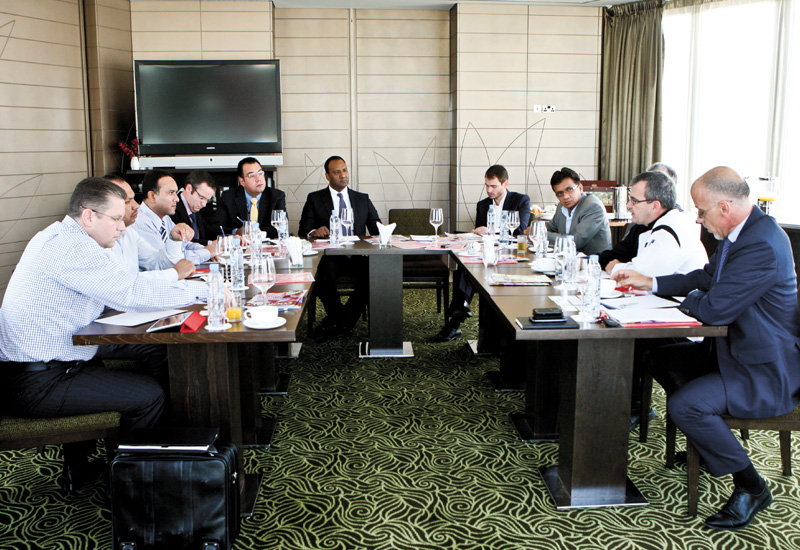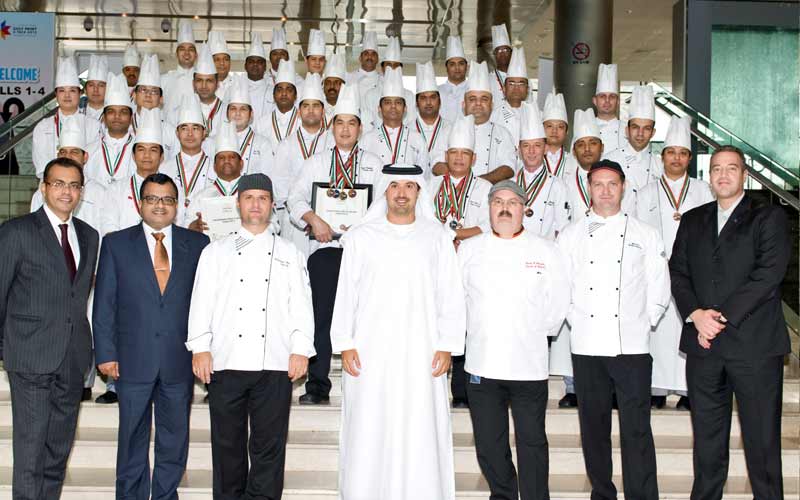What about technology in the mass catering industry — how does that help?
SSa: There a lot of companies that have come up with new ideas. Some companies have developed a device which reheats the food in the trolley itself. And it is divided into cold and hot compartments.
CC: Technology is a wonderful thing. While you can go to any supplier, most in Dubai carry catalogues and you pay the money and they bring the product in. That’s the reality. If you take the traditional mode of transporting food — an insulator which neither heats nor cools — you don’t plug it in.
If you pay AED 900-1000 ($245-275) for one and if you have 1500 of them you need to upgrade those to electrically operated ones. That will cost around AED 4.5mn ($1.23mn) and someone has to pay for that. It comes at a cost and when you start factoring that in, it becomes exponential and unrealistic.

| Advertisement |
SSa: A challenge for remote areas when planning an event is also planning the power. We need to send the list of equipment and send the power requirements of each. We have had some locations where we were told there was not enough power, so we had to completely change the menu. We had for example, live cooking pasta stations like Blanco and there was no space for them. We had to shift it to the main kitchen, re-heat, and then send it to the site.
Does mass catering stick to the basics, or do you follow food trends or look at seasonal ingredients?
SSa: It goes back to the client requirements, or the nationality of the guests. You don’t have much limitation in terms of menu, except when it comes to picking foods that best suit the venue. And everything should be within the budget.
CC: But you have huge ends of that spectrum in terms of mass catering. When it comes for catering to labourers, what we pay for three meals a day, you couldn’t buy a Happy Meal at McDonald’s. It’s less than AED 10 a day for three meals.
There it’s all cost so the ingredient is actually driven by cost. There is no fancy schmancy, it’s absolutely to the bone — rice, dal, vegetable, bread. The expectation is that they should consume 3000-3500 calories a day. And then there’s the top end of catering where people are prepared to pay AED 250-300 ($68-82) per head.
Who takes responsibility for any hygiene concerns, and what happens in extreme cases of food poisoning?
MKS: All the hospitals and clinics are linked to the Dubai Health Authority (DHA) so when a case of food poisoning comes in, we are informed as well. Once we receive a notification from DHA, we have a team which interviews the patients and physically goes to the premises in question and checks the facility, the hygienic conditions, identifies the organism, and then identifies the food.
We find the links of a chain and find out who is responsible. While investigating, the team takes three to five days worth of information about where they had food, because it’s not always the case that the last thing they ate was the culprit.
SSa: We have a huge food safety department and it’s very, very strict. You have to look at the symptoms because the incubation period can be, as he said, five days. It’s definitely complicated.
Article continues on next page ....










 Search our database of more than 2,700 industry companies
Search our database of more than 2,700 industry companies









